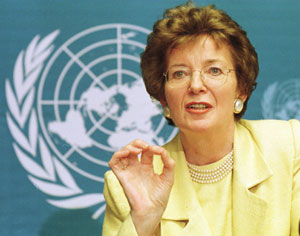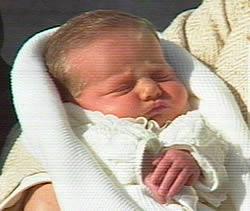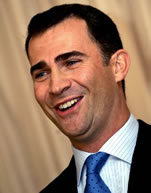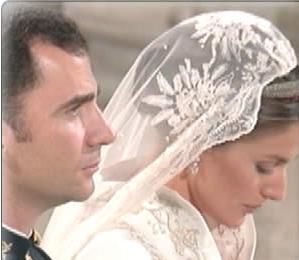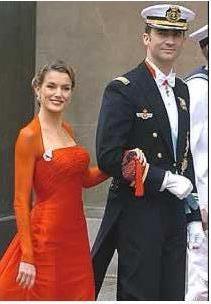As media excitement reaches fever-pitch here in Spain, and more and more space and time is dedicated to the imminent royal wedding, it gets more and more difficult to find an alternative news story, that is a story relevant to current affairs and life in Spain. All headlines this morning in Spain are dominated by international events, namely yesterday's two major horrors in the Middle East - Israel's apalling missile attack on a peaceful demostration in Gaza, and the massacre of about 40 civils attending a wedding in Iraq by US military forces. The royal wedding is, rightly, put into perspective when flanked by tragic events such as these on the international scene. Nevertheless the wedding ceremony of Prince Felipe and Letizia is increasingly the big domestic news story at the moment here in Spain.
We arrived in Madrid yesterday and the whole city is busy preparing for Saturday's wedding. All the trees in the centre have been pruned, flowers line the clean streets, lights are everywhere... Madrid always looks pretty in May, but this Spring it has entered into wedding-mode with typical Spanish enthusiasm, and it is obvious that the authorities have spent alot of money on making the city look its best. On some streets you can find descrete notices addressed to the Madrilenyos (residents of Madrid) from the municipal authorities, inviting everyone to enjoy the celebrations and to help to show Madrid's best side to the rest of the World.
At night time in the centre the streets fill up with people eager to see the special "wedding lights" and laser displays which have been installed around Cibeles and Alcala. Yesterday at midnight the streets were as crowded with cars and people as they usually are at midday on a typical weekday - at half past eleven p.m. the traffic on the wide Paseo de la Castellana avenue was at a complete standstill. The extra security measures which have been taken are also evident. Police seem to be everywhere, and the US embassy in particular is like a military bunker, surrounded by barriers, tanks and military police. Today police are going to remove all rubbish bins lining the streets near the wedding area, as an extra security measure. As from tomorrow more streets will be cordoned off, and on Saturday all metro stations near the Almudena Cathedral will be closed all day.
Most Spaniards are proud of their
royal family, if anything even more so since the 11-M Madrid train bombings when all members of the family openly joined victims families in their grief, not only during the
state mass held for them, but also in hospitals where victims recovered in the days and weeks after the attack.
El Mundo publishes a list of guests due to arrive today and tomorrow (together with airport and time of arrival). The list includes: Nelson Mandela and his wife (!!), Prince Naruhito de Japon, The Sha and Shahbanou of Iran, the Presidents of El Salvador, of Nicaragua, Colombia, Panama, Germany, Portugal and Ireland. Vaclav Havel ex-President of the Czech Republic, the Queen of Jordan, the wives of various presidents and prime ministers, the president of the World Bank, the kings, queens, princes and princesses of Sweden, Belgium, Norway, Netherlands, Denmark and numerous other princes and princesses from small European and Arab countries. Apparantly the British authorities have still not confirmed the time of Prince Charles' arrival.
Labels: Spanish royals
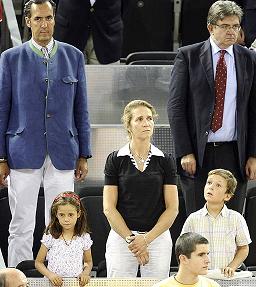 Duke and Duchess of Lugo have separated.
Duke and Duchess of Lugo have separated.
